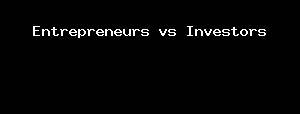profile/8390IMG_20200720_161813_4.jpg
Seersam

Why Some People Will Still Be Poor..
~3.8 mins read
No matter how some people aspire to be rich or struggle to gather wealth, they will keep on getting poorer why? Even though Government sometimes has a say in the poverty level of a country, sometimes people themselves are the real ones that are attracting poverty to themselves either consciously or unconsciously. Poverty can simply means lacking the means to satisfy our basic needs such as food, shelter and clothings. In a layman term, poverty means having little or no money to take care of numerous wants and expense
Poverty is a mindset that needs to be solved, if only some would try to think themselves out of their shallow mind which believe that poverty is only caused by government and them alone
They refused to take responsibility for their actions. Some of the reasons why people may get poorer and more everyday are listed below;
They refused to take responsibility for their actions. Some of the reasons why people may get poorer and more everyday are listed below;
1. Extravagant or reckless Spending
Sorry, but for some have got bad spendings, they spend lavishly and extravagantly without a steady source of income. This type of people will spend more beyond their means and later go bankrupt. They're the ones that will be showing off at parties, they won't spend based on their means or earnings. Even a rich man can become poor if he didn't checkmate his spendings. Extravagant Lifestyle with no corresponding income will result to poverty eventually. Even all these rich people we know spend meaningfully
Why, because it's not easy getting money.
Sorry, but for some have got bad spendings, they spend lavishly and extravagantly without a steady source of income. This type of people will spend more beyond their means and later go bankrupt. They're the ones that will be showing off at parties, they won't spend based on their means or earnings. Even a rich man can become poor if he didn't checkmate his spendings. Extravagant Lifestyle with no corresponding income will result to poverty eventually. Even all these rich people we know spend meaningfully
Why, because it's not easy getting money.
2. Laziness
Oh my God, some are so lazy to the bones. They will sit down at home sleeping and be expecting money to come, how come? This type of people can sleep and compete with the dead about who sleeps longer. These people may have the necessary things they needed to break free from the shackles of poverty but they're so lazy. They are the able-bodied people who can work that we all have around us but they choose to be walking around aimlessly with no purpose in mind. According to one quote in the book of The Richest Man in Babylon, it said "Wealth grows wherever men exerts energy". Now you are not working or either productive, how do you want to make it in life, tell me! Even the Bible commands us to work harder and smarter, God frowns at lazy people that he even said no food for whosoever do not work.
Oh my God, some are so lazy to the bones. They will sit down at home sleeping and be expecting money to come, how come? This type of people can sleep and compete with the dead about who sleeps longer. These people may have the necessary things they needed to break free from the shackles of poverty but they're so lazy. They are the able-bodied people who can work that we all have around us but they choose to be walking around aimlessly with no purpose in mind. According to one quote in the book of The Richest Man in Babylon, it said "Wealth grows wherever men exerts energy". Now you are not working or either productive, how do you want to make it in life, tell me! Even the Bible commands us to work harder and smarter, God frowns at lazy people that he even said no food for whosoever do not work.
3. Lack of Financial Education
This is in two phases, a person might go to school, got a degree even Masters and PhD but he might lack knowledge on how money works; financial literacy. Financial Literacy is not taught in schools, if it were so, all Universities graduates will have become rich. Financial literacy can be achieved through personal learning adventure and reading books that can help to understand some of the ways how money works for you and not you working for money, that's a difference between the two. Another person can be ignorant totally on basic education and financial education. Financial Education will teach you how to sight opportunities that can make you earn more and also teach you how to utilize them.
This is in two phases, a person might go to school, got a degree even Masters and PhD but he might lack knowledge on how money works; financial literacy. Financial Literacy is not taught in schools, if it were so, all Universities graduates will have become rich. Financial literacy can be achieved through personal learning adventure and reading books that can help to understand some of the ways how money works for you and not you working for money, that's a difference between the two. Another person can be ignorant totally on basic education and financial education. Financial Education will teach you how to sight opportunities that can make you earn more and also teach you how to utilize them.
4. Wrong notion of money
This type of problem can only be solved through the orientation of the mind as a result of the fact that the problem comes as a result of wrong belief or notion about money. This type of people won't do anything to make themselves rich. It's not that they're lazy. They believe that too much money is not good generally. They are the vanity crew who will be saying money is not everything, yet they wake up early to go to work the following day because of what... Money, those that will tell you that money is the root of all evils, but has someone told them that not having money is also the root of a greater evils. These people confined themselves to a low lifestyle. They believe they're okay once they have something to put in their belly but I bet life goes a long way than that.
This type of problem can only be solved through the orientation of the mind as a result of the fact that the problem comes as a result of wrong belief or notion about money. This type of people won't do anything to make themselves rich. It's not that they're lazy. They believe that too much money is not good generally. They are the vanity crew who will be saying money is not everything, yet they wake up early to go to work the following day because of what... Money, those that will tell you that money is the root of all evils, but has someone told them that not having money is also the root of a greater evils. These people confined themselves to a low lifestyle. They believe they're okay once they have something to put in their belly but I bet life goes a long way than that.
4. Lack of birth control
This causal factor is very rampant in African countries. Some believe rearing and storing up children is very beneficial to themselves. When there are too many children on ground with enormous expenses to cater for without a sizable means, won't there be a problem? Apart from the effect of this act on a nation's population, it can even cause famine in the long run.
Having children is a gift from God but it shouldn't be mismanaged. It's advisable to give birth to a number you can conveniently afford to cater for. Don't let children be the source of your poverty. Cut your clothes according to your site.
Having children is a gift from God but it shouldn't be mismanaged. It's advisable to give birth to a number you can conveniently afford to cater for. Don't let children be the source of your poverty. Cut your clothes according to your site.
5. Addiction to gambling, drug
Addiction to gambling is very bad. It reeks of bad manners. To begin with, don't think you can get a sustainable wealth through gambling. Check the list of the richest people in the world, who among them has gambling as his source of income. Money you didn't work for will fly away in a twinkle of an eye. That's one of the rules of money.
Money that can be used productively and legally to make more money, you are placing it as bets, who is fooling you?
Spending money on gambling, alcohol and drugs is one of the surest ways to be poor. Keep on with it and I can guarantee you that you will become so poor that you will feel sorry for yourself.
Addiction to gambling is very bad. It reeks of bad manners. To begin with, don't think you can get a sustainable wealth through gambling. Check the list of the richest people in the world, who among them has gambling as his source of income. Money you didn't work for will fly away in a twinkle of an eye. That's one of the rules of money.
Money that can be used productively and legally to make more money, you are placing it as bets, who is fooling you?
Spending money on gambling, alcohol and drugs is one of the surest ways to be poor. Keep on with it and I can guarantee you that you will become so poor that you will feel sorry for yourself.
profile/8390IMG_20200720_161813_4.jpg
Seersam

Entrepreneurs Vs Investors
~2.2 mins read
Some days ago I stumbled on a post on Facebook,it was been said that between entrepreneur and an investor who is the greatest?. Naturally such question stirred up an argument as to which of the two is the greatest. This prompt me to bring it to readcash to hear your honest opinion on it. Meanwhile I also want to add my own view in the subject matter.
First, who is an investor and who is an Entrepreneur. An Investor is a person who invests money or anything substantial with the aim of making profit or for profit making motive. To invest is to commit money or capital in the hope of financial gain; to spend money, time, or energy into something, especially for some benefit or purpose.
Investors are seen everywhere, ranging from people buying shares in the stock market to people investing in landed properties or real estate investment and so on. An investor tries to convert opportunities to monetary gains. They try to turn existing opportunities to wealth. A pure investor is concerned about his profits and nothing else.
What about an Entrepreneur? Personally to me, I will rather say Entrepreneur has my vote in the comparison. An entrepreneur is a person that organizes, controls, coordinate and operates a business venture and assumes much of the associated risks. Now at this point, don't narrow ur concept of an entrepreneur to a person that found a business, Entrepreneur go much a long way. Entrepreneur may not necessarily be a business owner. One of the thing associated with entrepreneurs are the fact that they are inventors and that they create opportunities. People have been having a wrong notion of an entrepreneur, they think an entrepreneur is all about that big boss who founded a company and has workers working for him, hell no. Entrepreneurs are known for seeking for problems and finding ways to solve it. Consider Mark the founder of Facebook, he noticed some shortcomings in how people communicate with each others, he saw a problem of communication, he solved it by introducing Facebook. Entrepreneurs are problem solver, we all have great technopreneurs who have invented great technologies for our ultimate use. Consider Michael Faraday, they all recognized a need. Making profits is not their ultimate goal but solving problems.
An Investor can act in the capacity of an entrepreneur and vice versa. What I meant by that is this, take for instance, Mr K discovered in his community that people there have the problems in reading and writing and that affects them negatively even in their businesses as they cannot interact in a meaningful conversation with their learned customers. He then decided to open a school to teach them basic literacy. Now Mr K is an entrepreneur because he recognized a need and decides to make provision for schools. Yet he is also an investor because he assumed that by investing his money to build a school, his returns will be paid in folds in terms of tuition fees that will be collected.
Now between the two, without one interfering with the role of others I mean a pure entrepreneur and a total investor, who is your choice, lemme know in the comments box and give your reasons as well. Thanks for reading.
Advertisement

Link socials
Matches
Loading...
